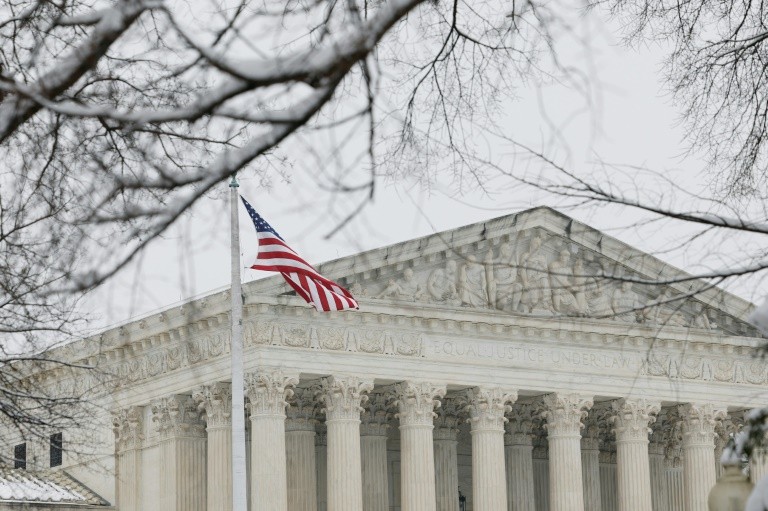
The U.S. Supreme Court on Monday temporarily halted a court-ordered deadline requiring the return of a Maryland man wrongly deported to El Salvador.
The move comes in response to a request from President Donald Trump, whose administration mistakenly deported Kilmar Armando Abrego Garcia in March.
At the center of the legal battle is Abrego Garcia, a father of three and Salvadoran national, who was removed from the U.S. despite a 2019 immigration ruling that barred his deportation due to credible threats against his life.
Monday's Supreme Court action delays a midnight deadline set by a lower court, buying time for further judicial review in a case that has sparked fierce debate over executive power, immigration enforcement, and the role of federal courts in foreign affairs.
Chief Justice John Roberts issued the temporary "administrative stay," extending the deadline without setting a new one. The court also ordered a response from Abrego Garcia's legal team by Tuesday, though it had already been submitted before Roberts' announcement.
"This is just a temporary administrative stay. We have every confidence that the Supreme Court will resolve this matter as quickly as possible," said Simon Sandoval-Moshenberg, attorney for Abrego Garcia.
The Trump administration has admitted in court documents that Garcia was deported "because of an administrative error," but now argues it cannot retrieve him due to his current detention in a notorious Salvadoran prison. The Department of Justice is framing the case as a constitutional standoff, accusing the courts of overreach.
"Even amidst a deluge of unlawful injunctions, this order is remarkable," Solicitor General D. John Sauer wrote in a filing Monday. "The Constitution charges the president, not federal district courts, with the conduct of foreign diplomacy and protecting the nation against foreign terrorists, including by effectuating their removal."
"While the United States concedes that removal to El Salvador was an administrative error ... that does not license district courts to seize control over foreign relations, treat the executive branch as a subordinate diplomat, and demand that the United States let a member of a foreign terrorist organization into America tonight," Sauer continued.
Abrego Garcia's attorneys rejected that claim outright, stating in a filing that the administration is attempting to sidestep accountability.
"There is no dispute that Abrego Garcia is only in El Salvador because the United States sent him there," his lawyers argued. "There is likewise no dispute that he is being held only because the United States has requested that he be held. And there is no evidence in the record of this case supporting the government's contention that it cannot bring him back."
They further criticized the administration's characterization of their client as a threat: "The executive branch may not seize individuals from the streets, deposit them in foreign prisons in violation of court orders, and then invoke the separation of powers to insulate its unlawful actions from judicial scrutiny."
Though Abrego Garcia was living in the U.S. without legal status, a 2019 immigration court ruling protected him from deportation due to credible threats from gangs targeting his family's pupusa business in El Salvador.
The Trump administration now claims he is a "ranking member" of the MS-13 gang — a group designated as a foreign terrorist organization — thus arguing that the court's previous protection no longer applies.
Despite those claims, records show Garcia regularly checked in with immigration authorities for six years and was never charged with a crime.
Nevertheless, he was recently placed on a deportation flight to El Salvador, separated from his family under Trump-era legal justifications, including the rarely invoked 1798 Alien Enemies Act — a statute currently facing its own Supreme Court challenge.
Garcia's wife, Jennifer Stefania Vasquez Sura, expressed cautious optimism following the appeals court ruling, stating, "This decision gives me hope, and even more encouragement to keep fighting. My children, family, and I will continue praying and seeking justice. Now that the court has spoken, I ask again that both President Trump and President Bukele stop attempting any further delays. They need to follow the court's order NOW. My children are waiting to be reunited with their father tonight."








